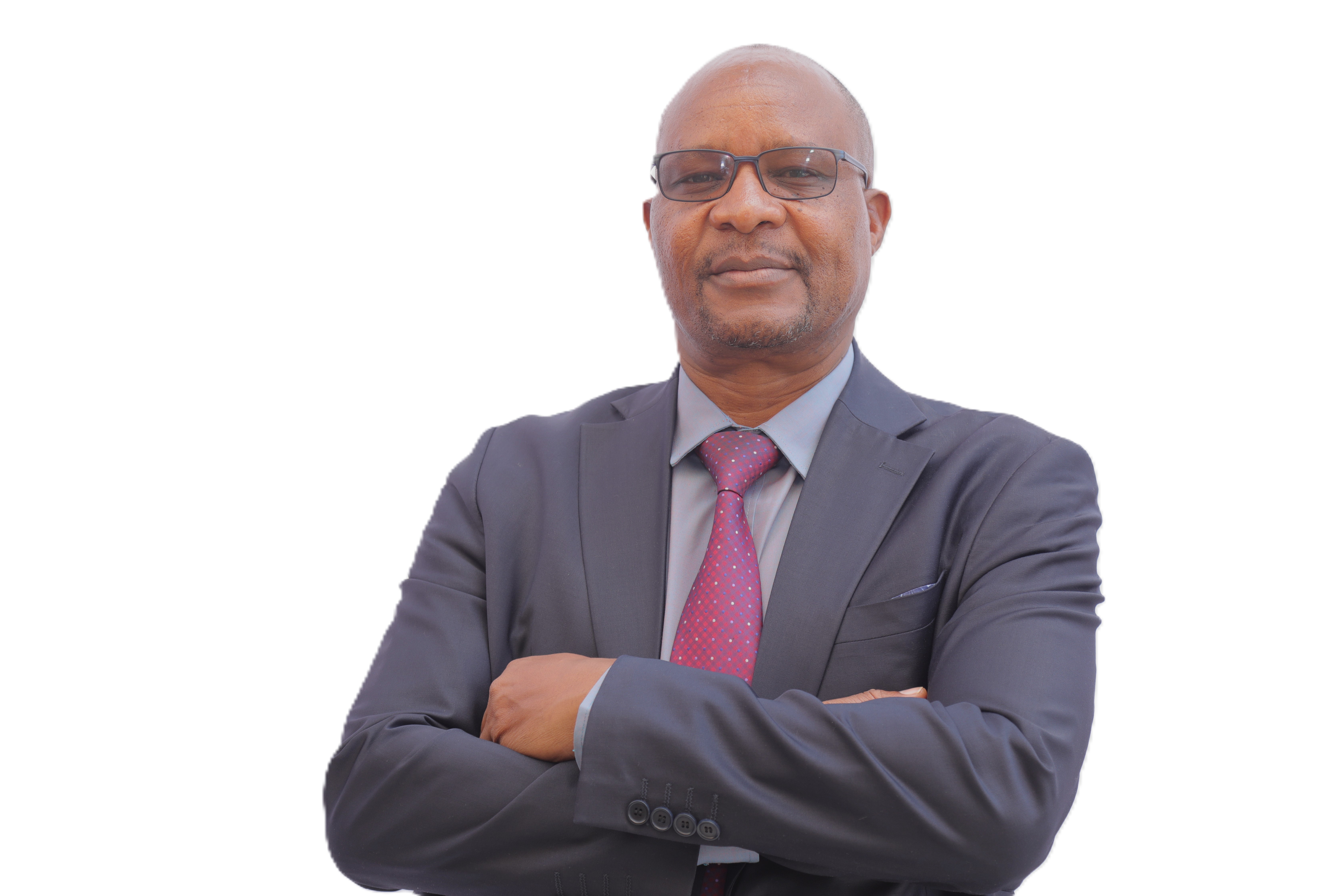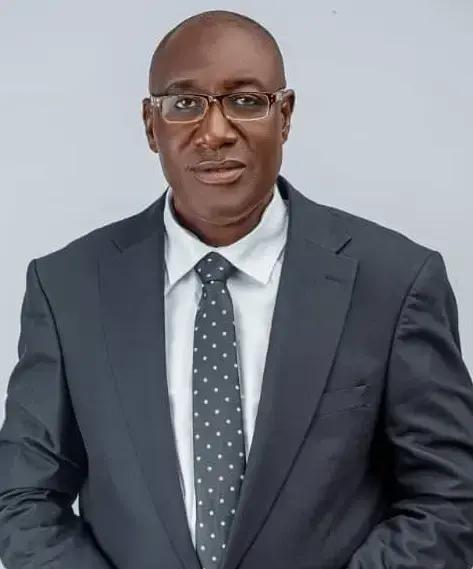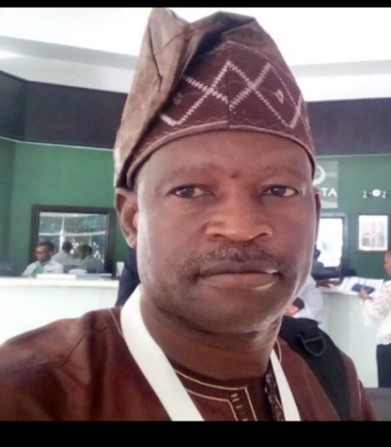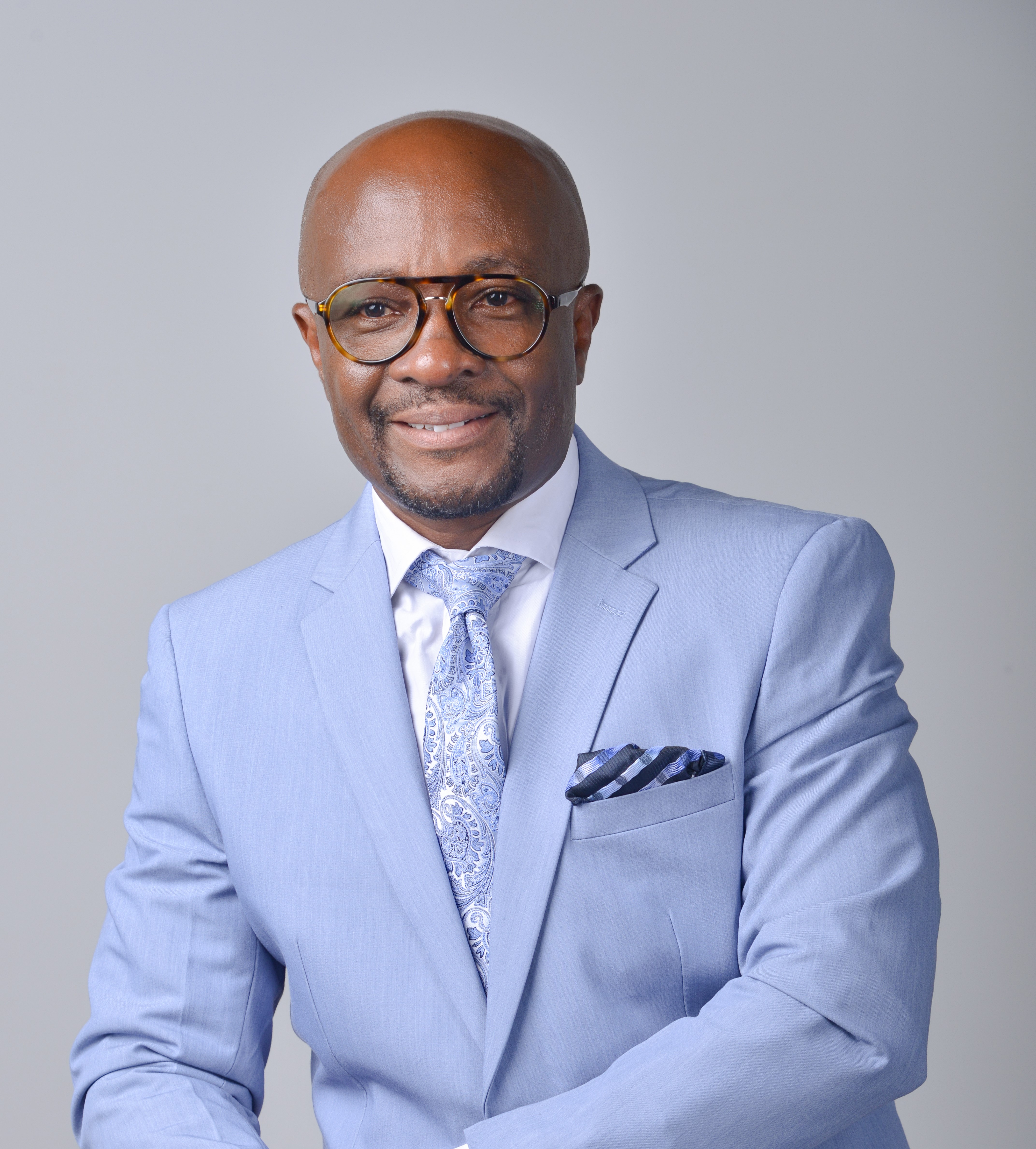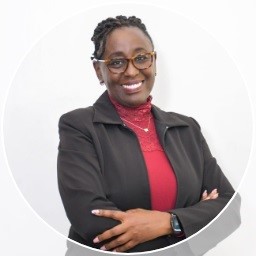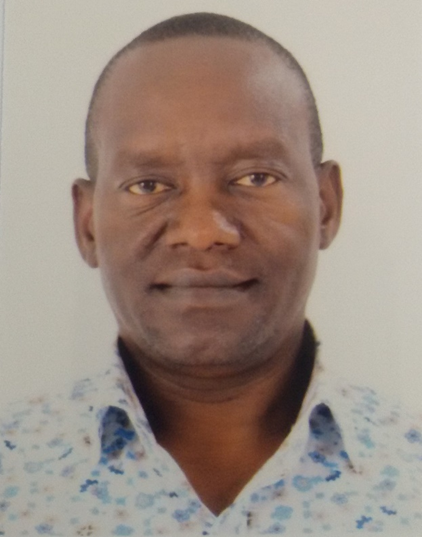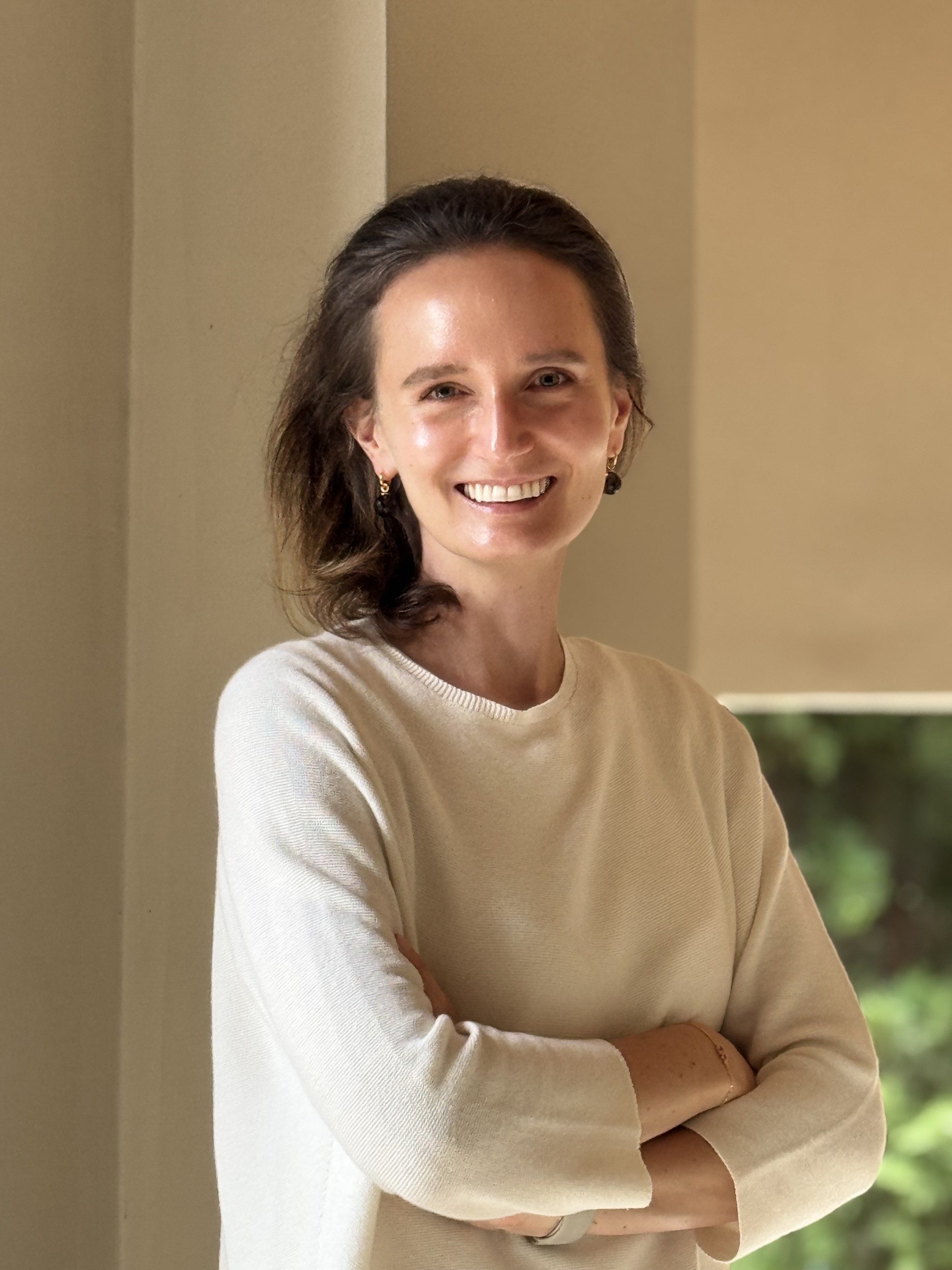By Verenardo Meeme
August 28, 2025
(Lusaka, Zambia) Misinformation and disinformation are emerging as significant barriers to Africa’s adoption of innovative biosciences, and yet the consensus is that Africa needs rapid, responsive, and scaled-up technology adoption to tackle the continent’s most pressing challenges in agriculture and health.
At the recent Africa Biennial Biosciences Communication (ABBC) symposium in Lusaka, Zambia, experts warned that unchecked falsehoods risk undermining public trust, delaying innovation, and eroding the benefits of science-led solutions.
A recurring theme across the symposium was the disruptive power of misinformation. Delegates noted that while science can deliver solutions for food security, health, and climate resilience, inaccurate narratives risk reversing progress. The World Economic Forum recently ranked disinformation as the second greatest global risk after extreme weather.
Panelists speaking at a high-level panel moderated by Dr Barbara Zawedde, Director of Research at Uganda’s Mukono Zonal Agricultural Research and Development Institute (MUZARDI), stressed the need for stronger frameworks to safeguard science.
Dr Canisius Kanangire, Executive Director of AATF, cautioned that misinformation must be countered through deliberate engagement.
“As scientists, we have a role in ensuring our work is not destroyed by those who do not understand science. Let’s protect our innovations that have the potential to uplift livelihoods,” he said.
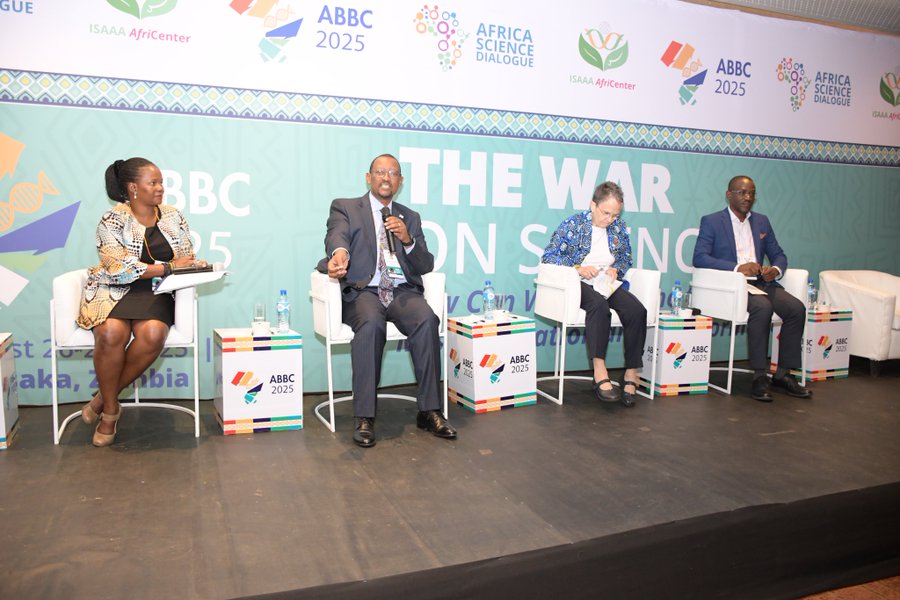
He pointed to AATF-led efforts under the Open Forum on Agricultural Biotechnology (OFAB), which partners with likeminded organizations such as ISAAA AfriCenter to strengthen media capacity, train communicators, and run initiatives like Seeing is Believing and Eating is Believing. These programmes, he noted, have been central to demystifying biotechnology and providing evidence-based information to policymakers, farmers, and the public.
But he also stressed that communication strategies must be culturally and contextually sensitive. “Effective communication requires understanding Africa’s social and religious practices, ensuring that technologies are developed and deployed in ways that improve livelihoods.”
Dr Shirley Tarawali, Assistant Director General of the International Livestock Research Institute (ILRI), highlighted the value of robust governance structures. She cited Kenya’s Biosafety Act as an exemplary regulatory system that provides a safe pathway for deploying biotechnologies. Regional and global collaborations, such as biobank training programmes in East Africa and webinars on genomic tools in Asia and Africa, are vital to building Africa’s scientific preparedness for the adoption of beneficial technologies, she added.
Science Africa’s Dr Moses Alobo underscored the need to strengthen implementation of science solutions—ensuring research does not remain on the shelves but translates into real-world applications. He pointed to the Grand Challenges Africa programme, which has supported over 4,000 fellows and 330 scientists across 35 countries.
“Building capacity for Africa, by Africa, and for Africa is critical if we are to deploy innovations successfully,” he said.
ISAAA AfriCenter Director and ABBC convenor Dr Margaret Karembu observed that ABBC’s strength lies in its inclusivity, bringing together researchers, policymakers, private sector actors, and community leaders to find solutions.
She noted that the 6th edition of ABBC focuses on biosciences as a cornerstone of One Health solutions and sustainable food systems. “Collaboration is our greatest tool in unlocking the benefits of science while ensuring misinformation does not derail Africa’s development journey,” she said.
Broader lessons from misinformation
Another ABBC session, chaired by Prof Curtis Youngs of Iowa State University, featured panelists sharing experiences and expert advisories on the cost of misinformation in health sector.
Dr Theo Knight-Jones, Principal Scientist at the International Livestock Research Institute (ILRI), presented lessons from livestock disease control, warning that misinformation in areas such as Foot and Mouth Disease (FMD) vaccines has undermined preparedness and decision-making.
“Absence of evidence is not evidence of absence,” Dr Knight-Jones noted. “Strong governance, quality assurance of vaccines, and evidence-based policymaking are essential.”
Dr Sikhulile Moyo of the Botswana Harvard AIDS Institute Partnership drew parallels to the Covid-19 pandemic, citing how global travel bans following the Omicron variant discovery illustrated how science can be misinterpreted or politicized.
The ABBC discussions reflected a growing consensus: for Africa to harness biotechnology’s transformative potential in agriculture and health, investment in regulatory frameworks, capacity building, and evidence-based communication must go hand in hand.
#InternationalYouthDay #YouthInAgriTech #AATF #FutureOfFarming #ProsperityThroughTechnology #ScalingforImpact

